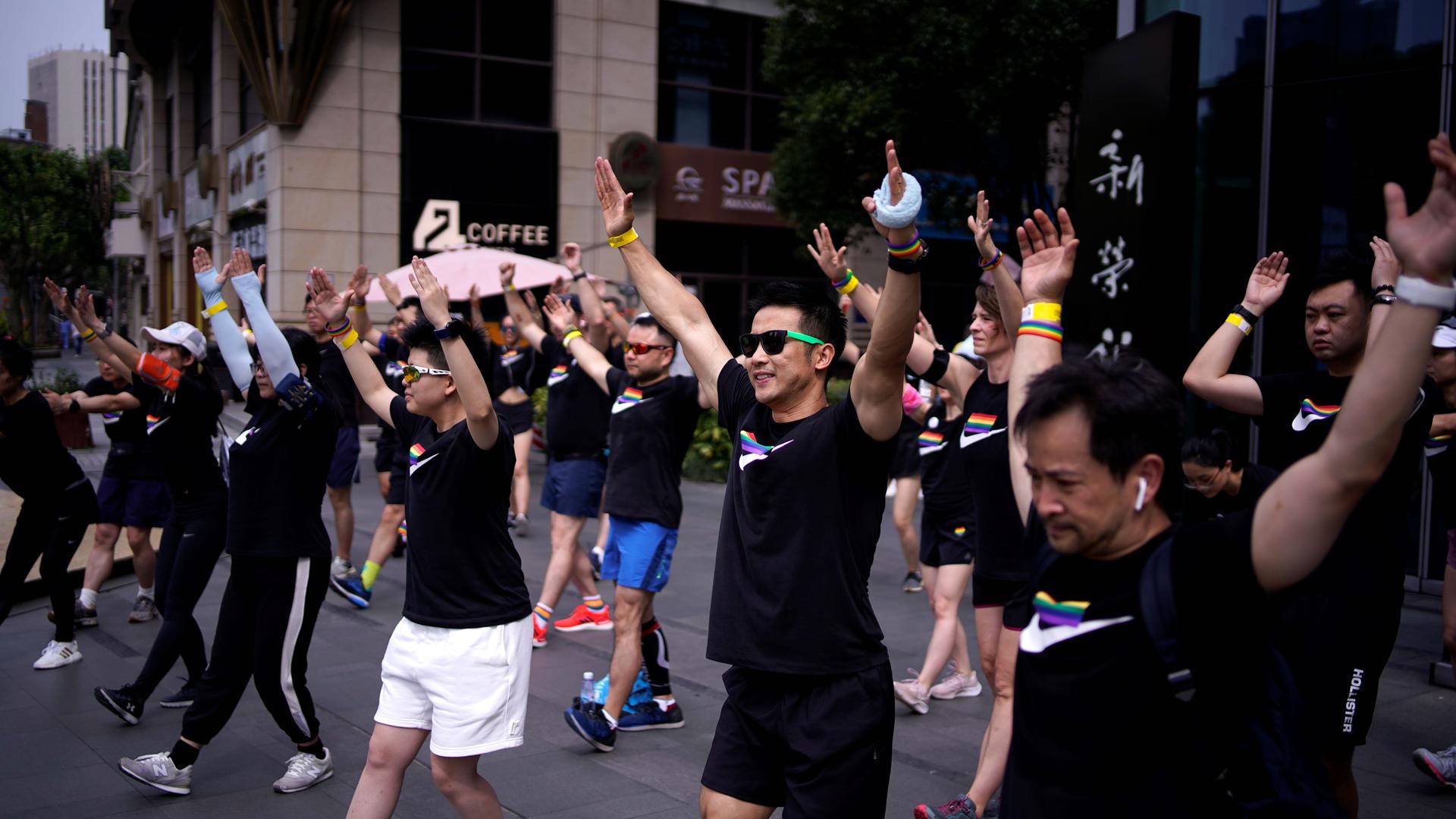In 2009, Charlene Liu, a Malaysian expat who lives in Shanghai, helped found ShanghaiPRIDE. That first Pride was meant to be a one-time event.
“To be honest, back then, none of us thought that we would be organizing Pride for so long. It was just one time for one year.”
“To be honest, back then, none of us thought that we would be organizing Pride for so long,” Liu said. “It was just one time for one year.”
Related: Diplomats display Pride flags as LGBTQ rights threatened in Russia
Afterward, people told them how much it meant to them, so the organizers decided to keep it going.
This year, while Pride marches all over the world were canceled or moved online amid the novel coronavirus pandemic, China’s only official Pride celebration in Shanghai, where social distancing restrictions have largely been lifted, went on last month as planned.
But ShanghaiPRIDE didn’t include the typical parade filled with people waving rainbow flags. In China, parades are mostly reserved for displays of military strength. So, organizers have to use a little bit of ingenuity to pull off one of the country’s longest-running Pride events.
The mid-June festival featured a full schedule of events, with parties, but also a film screening, job fair, storytelling event and forum on inclusion in the workplace and academia.
Organizing Pride events here isn’t exactly easy. China didn’t legalize homosexuality until 1997; it only stopped classifying it as a mental disorder in 2001. So, it’s legal to be gay, but it’s not a totally accepting environment.
Related: Sterilization abuse of Uighurs in China meets international legal criteria for genocide, experts say
A petition to legalize gay marriage was squashed last month, dashing the hopes many had for more legal protections. In the past few years, there have been media bans on LGBTQ content, and people have been harassed for just wearing rainbow badges.
“So, having venues closed down on us, is very common. Every year, we face the same issue. And we always have to come up with a Plan B, a Plan C, or Plan D,” Liu said.
Liu and other Pride organizers always have to be on their toes, and they try to keep festivities low key. So, no Pride Parade? Well, instead, how about a Pride Run and a Rainbow Bike Ride?
“We thought that, you know, everybody exercises. We know we want to be outside outdoors, networking, as well as keeping healthy. So, we don’t necessarily have a lot of events that probably other Prides have. But we get by with what we can do here, and also what the community is interested in.”
“We thought that you know, everybody exercises,” Liu said. “We know we want to be outside outdoors, networking, as well as keeping healthy. So, we don’t necessarily have a lot of events that probably other Prides have. But we get by with what we can do here, and also what the community is interested in.”
Liu has noticed a real change over the past decade. Acceptance of LGBTQ people and relationships is growing in China. Whereas the first ShanghaiPRIDE was led and attended more by foreigners, these days, most of the volunteers and participants are Chinese.
Related: How China uses malware to track Muslim Uighurs, even if they’ve fled the country
Alex Dai is a 55-year-old entrepreneur who’s been coming to Pride for years with his boyfriend. It’s become a big part of their life.
“For me, coming to Pride is like finding a home. Many of us can feel isolated, but at Pride, I found a family that accepts me, understands me and respects me.”
“For me, coming to Pride is like finding a home. Many of us can feel isolated, but at Pride, I found a family that accepts me, understands me and respects me,” he said.
For participants, going to Pride is fun and liberating. But behind the scenes, there’s a lot of pressure on the organizers, especially during a pandemic.
Related: Ai Weiwei: Hong Kong security law ‘the last nail of the coffin’
“This year is, we call it a very sensitive year,” Liu said. “Everything that everybody does, especially group gatherings, we are heavily monitored. And also because it’s for the safety, right, we want to make sure that everybody is safe, that we don’t get sick because we live in a city where there’s so many people.”
Now that Pride 2020 is over, Liu says she and her fellow volunteers can finally take a breather.
“Regardless of the challenges and stress, we know that at the end of the day, someone in the community will be inspired, will be encouraged, will be able to say that they are not alone and that they’re able to connect with other people in the same shoes and have the courage to be themselves,” Liu said.
And that makes it all worth it, she added.
Our coverage reaches millions each week, but only a small fraction of listeners contribute to sustain our program. We still need 224 more people to donate $100 or $10/monthly to unlock our $67,000 match. Will you help us get there today?
